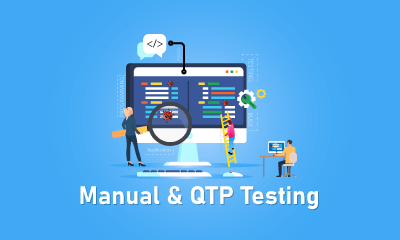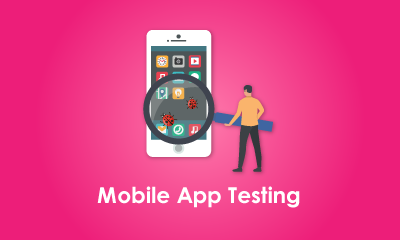If you're looking for JMeter Interview Questions for Experienced or Freshers, you are in the right place. There are a lot of opportunities from many reputed companies in the world. According to research, JMeter has a market share of about 10.0%. So, You still have the opportunity to move ahead in your career in JMeter Engineering. MindMajix offers Advanced JMeter Interview Questions 2024 that helps you in cracking your interview & acquiring a dream career as JMeter Engineer.
For ease of learning and understanding, we have divided these questions into 3 categories they are:
Top 10 Frequently Asked JMeter Interview Questions
- What do you know about JMeter features?
- What are the benefits of using JMeter?
- How JMeter works?
- What are the main parts of a Thread Group?
- What do you know about assertions?
- Explain Performance Testing?
- What are Post-Processors in JMeter?
- What are the roles of Listeners in JMeter. Can you name a few of them?
- Name at least 10 Listeners that JMeter is equipped with?
- How would you compare JMeter with other similar tools?
Jmeter Interview Questions for Freshers
1) JMeter Vs Loadrunner
| Apache Jmeter | HP Loadrunner |
| Available for FREE | Expensive(Editions Available) |
| Licenses per installation | Licenses per virtual user |
| Can generate unlimited load | Limited load generation |
| Less proficient implementation | High-end development and complex to implement |
| UI is not up to the mark | Impressive UI |
| Supports Linux, MS, iOS, and Web-Based | Supports MS, iOS, and Web-Based |
2) Name the common techniques for performance testing?
There are five testing techniques that are common in the present scenario. They are
- Spike Testing
- Load Testing
- Volume Testing
- Endurance testing
- Stress testing
These techniques measure the behavior of applications, their working conditions, handle apps with large records, and ensure functionality in case the overall number of users increases rapidly.
3) Explain Performance Testing?
The process of evaluating the performance of applications under greater load is known as Performance Testing. Basically, it’s nonfunctional testing and is generally done prior to categorizing the app on production. Actually, this ensures that the app will work fine under all the circumstances and don’t face issues like crashing during the real load. Performance monitoring is a very essential task.
| Related Article: Learn More About What is Performance Testing? |
4) Performance Testing needs a lot of activities to be performed. Name a few?
There are certain activities that are generally performed during this task and they are:
- Testing tool selection
- Performance test execution
- Performance test planning
- Analysis of test requirements
- Analysis of test results
- Script implementation
These activities are pretty common and can simply be performed.
5) What do you mean by the term Jmeter?
It is basically a Java-based tool that is meant to test the performance of apps. Its open-source nature makes it simply the best for this task. A number of testing related to the performance of the apps can simply be handled with this tool. It really doesn’t matter whether it's web services or web-based apps. Moreover, it is capable to handle databases as well as FTP servers.
| Related Article: Learn More About JMeter Performance Testing |
6) How requests are sent to the server in JMeter?
Basically, this is done with the help of Samplers. There are several samplers that are present in the JMeter and a few of them that are used commonly are:
- Junit request
- JDBC request
- HTTP request
7) What do you know about JMeter features?
Extensibility, portability as well as robustness are some of its key features. It is a Java-based approach, and thus it supports all applications based on the same. It is possible for the users to have a final outcome in graphical or tabular form. Test scripts can be created very fast and this is because of the playback feature that JMeter is equipped with. Also, a user needs not to worry about the protocols that can be tested through this tool.
8) Explain the Process of Parameterization?
Basically, it is a very simple process that parameterizes the different types of inputs. This is helpful in using the distinct values for the users.
9) What do you know about the correlation?
It is basically a process of enticing the data from the previous calls and then sending it to consecutive requests in the form of parameters. It is very helpful in making the scripting easy and the good this is it cut a lot of complexity from the process of handling sessions.
10) Tell something about configuration elements?
Customizing the requests that often come from samplers is an important task in JMeter. The same is performed with the help of configuration elements. They can also be used when it comes to integrating the sampler requests with the data obtained from the CSV file.
JMeter Interview Questions for Experienced
11) What exactly do you know about a Workbench in Jmeter?
Many times while handling the tasks in Jmeter, the need for storing the test elements is felt. Workbench stores them all on a temporary basis. In addition to the testing elements, there are certain nontest elements that are also present in it. There is a browser in this tool that helps in configuring these elements simply. Keeping anything on the Workbench doesn’t actually mean it is stored in the memory permanently.
12) Name an element in the JMeter that is powerful in representing a group of virtual users that are responsible for performing different operations.
The name of this element is Thread Group
13) Explain the Ramp-up period?
When it comes to testing the loading of an app, only a few users are considered then all for effectively studying the behavior of the app. This also derives a lot of useful information to know the overall performance of the app. Of course, it takes some time in making all the users in the running state. This time period is generally called the Ramp uptime. It is different from different apps depending on the overall number of users, data, and several other factors.
14) What are the benefits of using JMeter?
It is a very reliable told that always makes sure of error-free results. Its compatibility with all the apps makes it the best in performing its task. JMeter is an open-source tool and thus users need not worry about the cost. Learning and using this tool is not at all a big deal. In addition to this, customization of the JMeter tool to fit the exact needs is not at all a big deal. There are several tutorials and online communities to help that can help to eliminate any problem that declares its presence during the process.
15) What are the roles of Listeners in JMeter. Can you name a few of them?
Well, the prime role of listeners in the JMeter is to save the outcomes of tests after viewing the same. Basically, they are also very useful when it comes to graphical analysis as well as tabular analysis of the outcomes. A few of the commonly used Listeners are:
- Aggregate Graph
- View results tree
- Aggregate report
16) Name a few timers in JMeter. For what purpose they are considered?
Some of the common timers used in the JMeter are:
- Synchronizing timer
- Uniform random timer
- Gaussian random timer
- Constant timer
Many times test gassing of a thread needs to be stopped for a specific time. Timers are used for the same purpose. They are capable to simply simulate the real user thinking time.
17) What do you mean by the Rendezvous point?
Spike testing is a very common approach in Jmeter. Actually, there are certain tasks that are associated with it. The prime task of the rendezvous point is to managing spike testing without creating any issue. Actually, the synchronizing timer is considered along with it to perform this task. You need to wait for the time till all the active users reach a value that is assigned during the load test.
| Looking for Best Jmeter Online Training Platform in Hyderabad? To Enroll a Free Demo Click Here. |
18) What do you know about assertions?
Samplers' requests are often made in the JMeter. The actual task of assertions is to check certain values in acknowledging the requests from the samplers. Some of the assertions which are used often are:
- Xpath assertion
- XML assertion
- HTML assertion
In addition to these, another assertion i.e. Beansheel is also widely used for the same purpose.
| Related Article: JMeter Tutorial |
19) What do you mean by Plan a Test?
There are certain elements that are useful in a performance test. Test Plan is nothing but a logical packet that contains all those test elements. Some common examples are Assertions, thread groups as well as samplers.
20) What do you know about the Pre-processors in JMeter?
Before the sample requests are accomplished, Pre-processors are executed. Basically, these are nothing but the test plan elements that are helpful in ensuring reliability. Some of the widely used Pre-processors in the JMeter are:
- RegEx
- Beanshell
- Rewriting modifier
- Link paper for HTML
Most Common JMeter FAQs
21) Is it possible to run JMeter in GUI? If so, explain how?
Yes, it is possible to run the JMeter in GUI. For this, a simple command is used and i.e.
:jmeter -n -ttest.jmx -l test.jtl
22) How JMeter works?
It works very simply. There is nothing much you need to do. Actually, it simply acts as a pool of users that often sends their requests to the server. Collecting all the responses from the server is the responsibility of the JMeter. These responses are then considered for analyzing the performance of the apps.
23) What are the different protocols that are supported by JMeter?
For testing web applications, JMeter uses Web protocols such as HTTPS as well as HTTP. When it comes to testing the service applications, both Rest and SOAP are supported by JMeter. In addition to this, it supports HTTP and JDBC for analyzing the applications of the database. Another common protocol that JMeter handles is the Lightweight Directory Access Protocol (LDAP). Also, the protocols for testing the mail servers such as IMAP and SMTP are compatible with JMeter.
24) How would you compare JMeter with other similar tools?
The best thing is its GUI which is very simple as well as intuitive as compared to other tools. It really doesn’t matter which platform you use on computers. Like other tools, it doesn’t face any compatibility issues. Also, it’s a freely available tool due to its open-source nature. JMeter is having a very unique feature in it that most of the other tools lack and i.e. it can be used easily for automated testing of the apps. The extensible nature makes it simply the best as compared with others. In addition to this, it permits concurrent sampling very easily. All the test plans can be prepared in XML format in JMeter.
25) What are the main parts of a Thread Group?
The main parts of Thread Group as mentioned below
- Controller: which controls the entire flow of the thread group
- Assertion: This is responsible for time management. Basically, it checks whether the response is there within the specified time or not.
- Sampler: Its task is to send different requests to the server
- Configuration elements: It manages information related to the requests that are to be integrated with samplers
- Listeners: Its task is to save the final outcome of the run.
26) How sampler and logical controllers in JMeter are different?
Both these controllers have their own tasks for which they are responsible. The controller sampler ensures all the requests are met by the server. On the other hand, the Logical controller is responsible for changing the manner of processing the requests that are originated from the elements.
27) What are the features of Configuration elements?
All the variables, as well as defaults that are used in the samplers, are created through Configuration elements. In case the need to change the request raised by the sampler is felt, configuration elements can perform this task. With the help of this, Java testing can be made simple by setting the default values. Configuration elements are very helpful when it comes to setting more than one user logins for the web pages. Also, default values can be set which it which are used by the HTTP controller.
28) Name at least 10 Listeners that JMeter is equipped with?
A lot of Listeners are present and each is responsible for performing a specific task. They are:
- Summary Report
- Graph Results
- Spline Visualizer
- Monitor Results
- Data writer
- Response time graph
- Mailer Visualizer
- Aggregate results
- Backend listener
- Bean Shell Listener
29) What are the applications that you can test with JMeter?
There are certain types of apps that you can test and a few of them are FTP, TCP, Websites, Shell Scripts, SMTP, JDBC, and LDAP.
30) What are Post-Processors in JMeter?
They are quite similar to the Pre-Processors. The only difference is they are used after the accomplishment of sampler requests. They can easily be used when it comes to taking values from the sampler response.
31) What do you know about the Concurrent user hit in JMeter?
A concurrent user hit is when a very large number of users clash for a similar event of the app under lost test simultaneously. It is because this concurrency point is considered which makes the virtual users wait until others are already running the scripts.
 On-Job Support Service
On-Job Support Service
Online Work Support for your on-job roles.

Our work-support plans provide precise options as per your project tasks. Whether you are a newbie or an experienced professional seeking assistance in completing project tasks, we are here with the following plans to meet your custom needs:
- Pay Per Hour
- Pay Per Week
- Monthly
| Name | Dates | |
|---|---|---|
| JMeter Training | Feb 28 to Mar 15 | View Details |
| JMeter Training | Mar 03 to Mar 18 | View Details |
| JMeter Training | Mar 07 to Mar 22 | View Details |
| JMeter Training | Mar 10 to Mar 25 | View Details |

Ravindra Savaram is a Technical Lead at Mindmajix.com. His passion lies in writing articles on the most popular IT platforms including Machine learning, DevOps, Data Science, Artificial Intelligence, RPA, Deep Learning, and so on. You can stay up to date on all these technologies by following him on LinkedIn and Twitter.
















